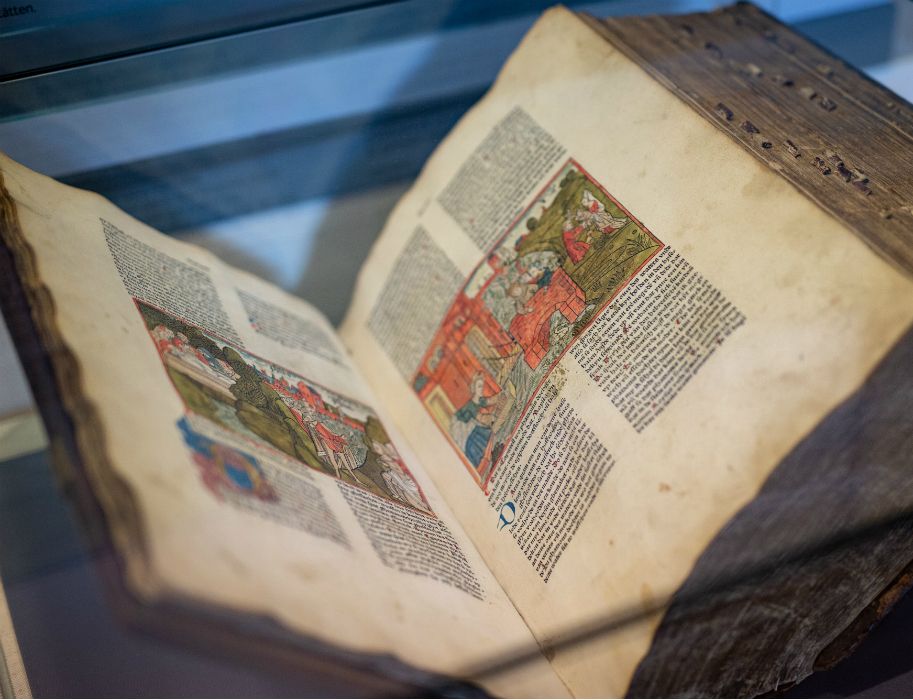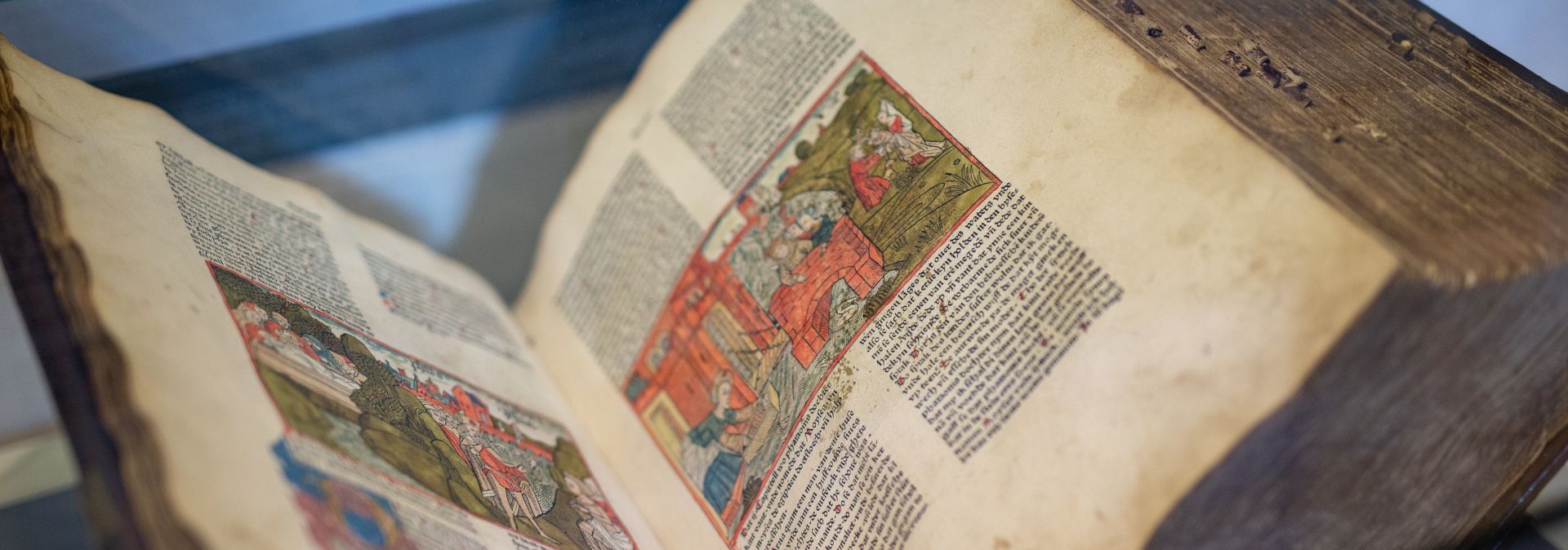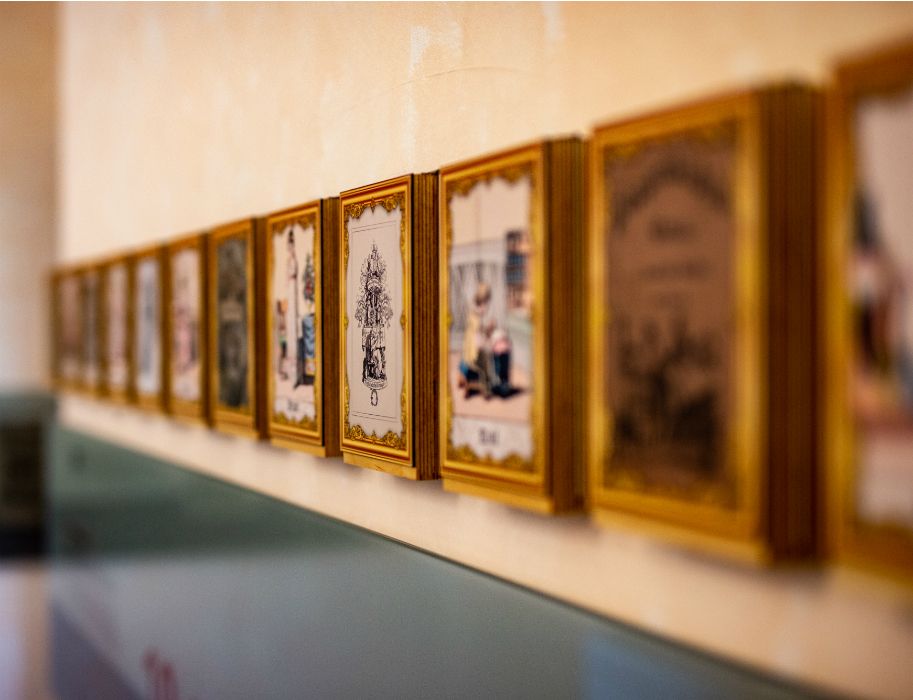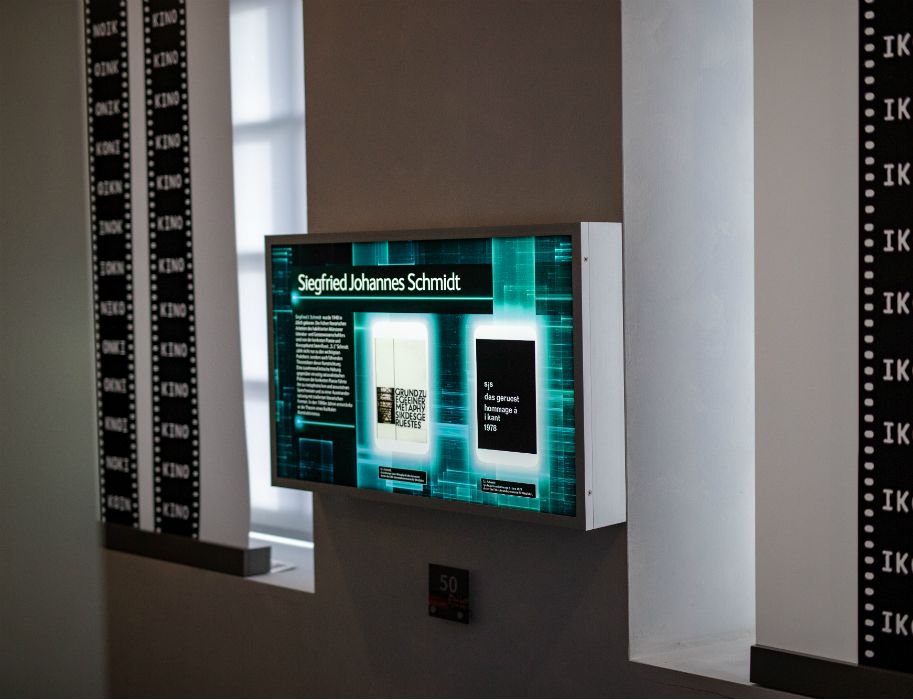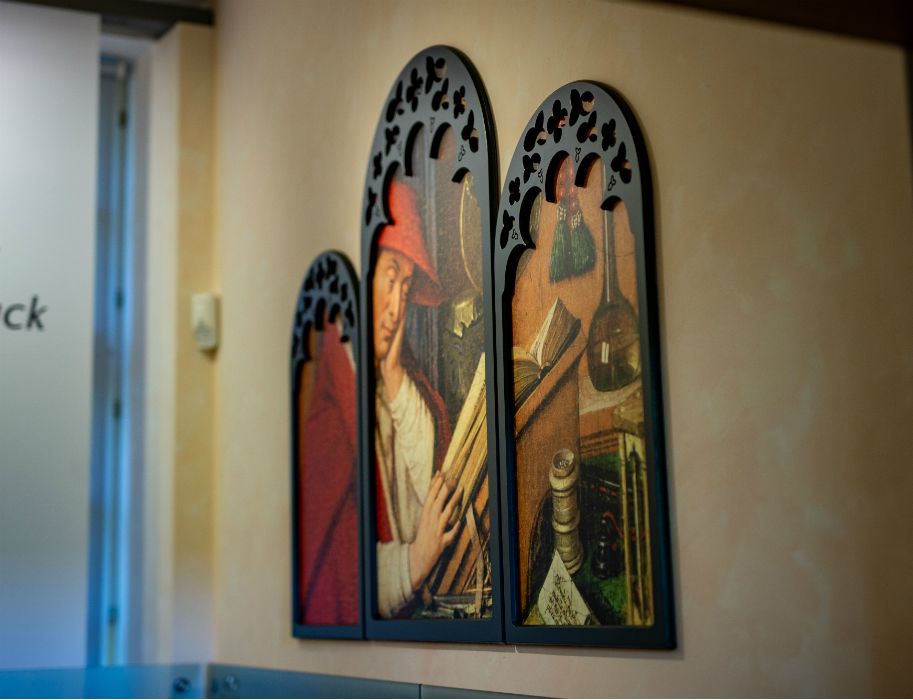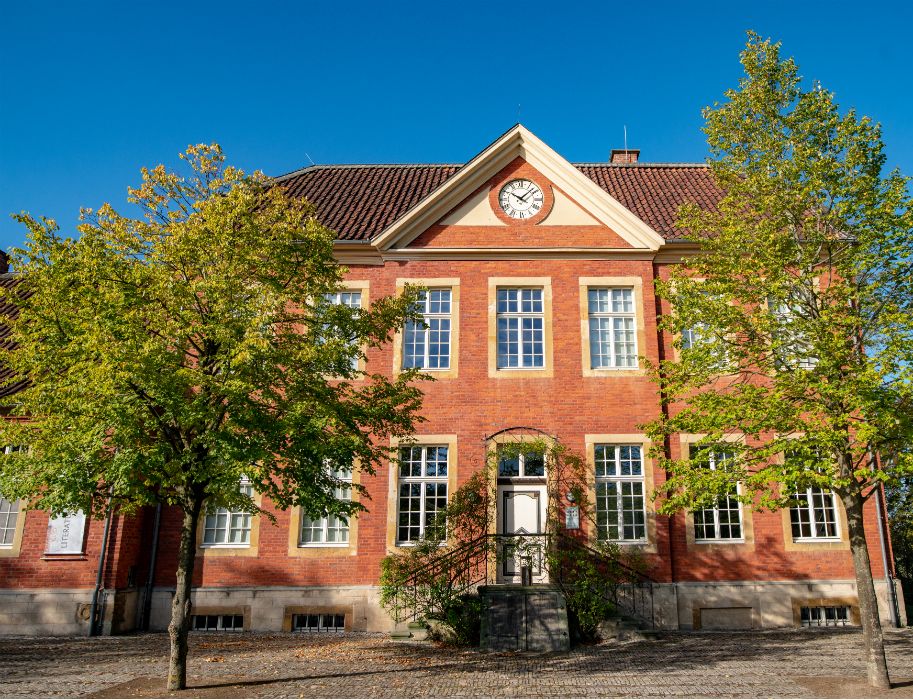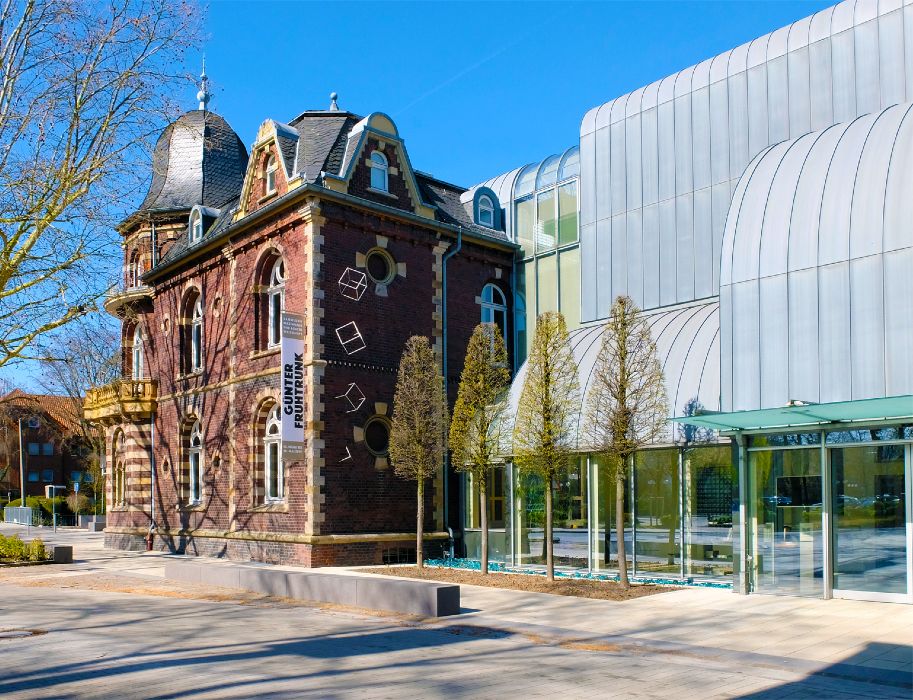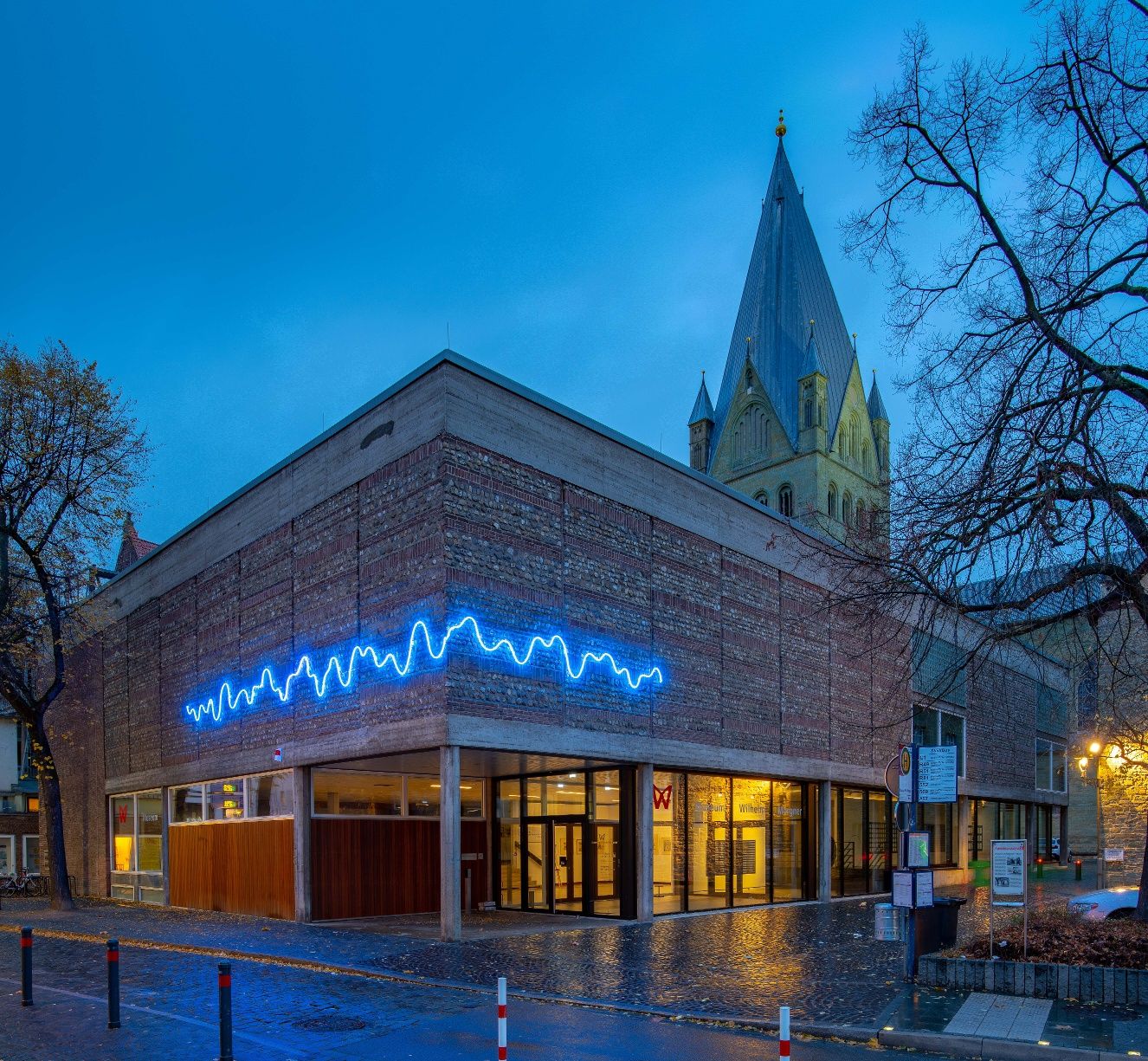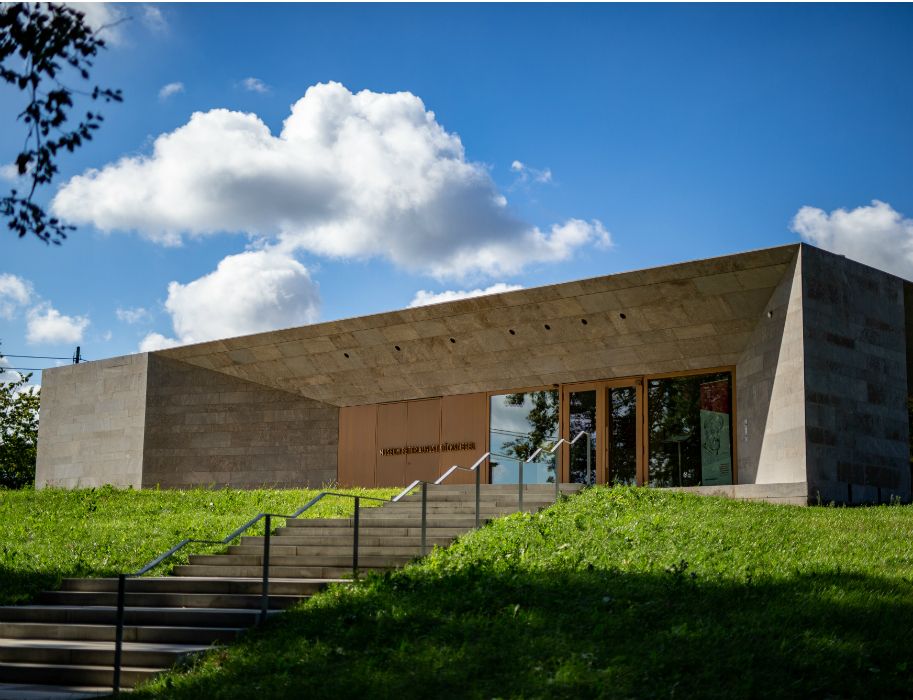Nestled in the typical Münsterland landscape, surrounded by wide fields and meadows, lies the former manor of Haus Nottbeck in Oelde. Built in the 14th century, it is now home to the Museum of Westphalian Literature. Visitors can experience exciting literary history here - from the eerily beautiful to the bitingly ironic.
Literature in a museum? That sounds like dust-dry air, meter-high bookshelves and absolute silence. Not at all. The most precious piece in the exhibition, a unique Low German Bible from the 15th century, can of course only be admired behind glass. But first and foremost, the Haus Nottbeck cultural estate is a lively place where contemporary authors and long-dead poets themselves have their say. More than 100 writers from the region - from medieval monks and the poet Annette von Droste-Hülshoff to contemporary crime writers - are presented to visitors on a tour of the Museum of Westphalian Literature.
What moves writers
The permanent exhibition is dedicated to topics such as "Fanaticism and superstition", "Voltaire's Westphalian mockery", the Anabaptist period and the "Westphalian Weimar". Above all, however, visitors have the opportunity to find out from the writers themselves what moved them. Numerous contemporary authors have lent their voices to the museum for mini radio plays and features on Westphalian literary history. In the cyber room, biographical background information on the Westphalian poets and audio samples can be accessed via touch screen. There are three idyllic listening islands in the park. And in the video pavilion, inspired by the reading pavilions of the Baroque era, Westphalian writers from all eras answer the question "Why do I write?" in their own personal, sometimes surprising way.
Contemporary authors, musicians and actors also like to come along themselves. Because the Haus Nottbeck cultural estate is not just a museum. The grounds, which blend a stately flair with a rural ambience, also regularly provide the backdrop for concerts, art projects, readings and much more.

